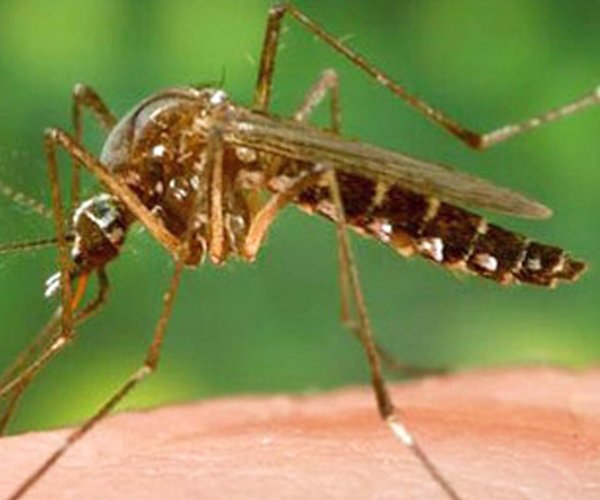Cardinal Jorge Mario Bergoglio of Argentina was elected today as Supreme Pontiff, the 265th successor of Peter, and has chosen the name Francis.
The Cardinal proto-deacon Jean-Louis Tauran made the solemn announcement to the people from the external Loggia of the Hall of Blessings of the Vatican Basilica following the white “fumata” which occurred early this morning.
After leading the Our Father, Hail Mary, and Gloria, Pope Francis addressed the crowd saying:
“And now let us begin this journey, bishop and people, this journey of the Church of Rome, which is the one that leads all the churches in charity. A journey of fraternity, of trust between us. Let us always pray for one another. Let us pray for the world so that this might be a great brotherhood. I hope that this journey of the Church that we begin today, and in which my Cardinal Vicar here present will assist me, will be fruitful for the evangelization of this beautiful city.
“Now I would like to impart the blessing, but first, first I ask a favor of you. Before the bishop blesses the people, I ask that you pray to the Lord that He bless me: the prayer of the people asking a blessing for their bishop. Let us pray in silence, this your prayer for me.
“Now I will impart the blessing to you and all the world, to all men and women of good will.”
Bergoglio is the first non-European pope in the modern era and the first Pope Francis. The election of Pope Francis comes after the Feb. 11 resignation of Pope Benedict XVI. Pope Benedict was the first in his office to resign on his own initiative since Pope Celestine V in 1294.
“The choice of the name Francis is very meaningful,” said Fr. Federico Lombardi, S.J., director of the Holy See Press Office, commenting on the election of the new Pope to reporters. “It is a name that has never been chosen before and evokes simplicity and an evangelical witness. His first, simple appearance in public testifies to both. It is a sign of great spirituality to ask the people's blessing for him before giving his own. It is a spirituality that recalls that of his predecessor. His pastoral sense of relationship with the Diocese of Rome should also be noted. It is the Pope's diocese and [he chose] to pray the Church's simplest prayers with the People of God at a moment like this.
“Cardinal Bergoglio,” he added, “is a Jesuit. Jesuits are characterized by their service to the Church, collecting all the charisms that the Lord gives us wherever they are needed, but trying to avoid positions of power. For me this election takes on the meaning of a call to server, a strong call and not a quest for power or authority. I am absolutely convinced that we have a Pope who wants to serve. His election was the election of a rejection of power."
According to Lombardi, the new Pope has already spoken by phone with Benedict XVI. The Pope has a busy schedule ahead of him starting with Mass with the cardinals in the Sistine Chapel on Thursday. On Friday, in the Clementine Hall of the Apostolic Palace, he will meet with the full College of Cardinals, electors and non-electors. On Saturday, the Pope will have an audience with the media. On Sunday, he will recite the first Angelus of his papacy as is customary, in St. Peter's Square. The Mass to inaugurate the new papacy will be held on Tuesday.
Bergoglio was born on Dec. 17, 1936 in Buenos Aires. He studied as and holds a degree as a chemical technician, but then chose the priesthood and entered the seminary of Villa Devoto. In March 1958 he moved to the novitiate of the Company of Jesus where he finished studies in the humanities in Chile. In 1963, on returning to Buenos Aires, he obtained a degree in philosophy at the St. Joseph major seminary of San Miguel.
Between 1964 and 1965 he taught literature and psychology at the Immacolata College in Santa Fe and then in 1966 he taught the same subjects at the University of El Salvador, in Buenos Aires.
From 1967 to 1970 he studied theology at the St. Joseph major seminary of San Miguel where he obtained a degree. In December 1969 he was ordained a priest. From 1970 to 1971 he completed the third probation at Alcala de Henares, Spain, and on April 22, 1973, pronounced his perpetual vows.
He was novice master at Villa Varilari in San Miguel from 1972 to 1973, where he also taught theology. On July 31, 1973 he was elected as Provincial for Argentina, a role he served as for six years.
From 1980 to 1986 he was rector of the Philosophical and Theological Faculty of San Miguel as well as pastor of the Patriarca San Jose parish in the Diocese of San Miguel. In March 1986 he went to Germany to finish his doctoral thesis. The superiors then sent him to the University of El Salvador and then to Cordoba where he served as a confessor and spiritual director.
On May 20, 1992, John Paul II appointed him titular Bishop of Auca and Auxiliary of Buenos Aires, He received episcopal consecration in the Cathedral of Buenos Aires.
In June 1997 he was appointed Coadjutor Archbishop of Buenos Aires and succeeded Cardinal Antonio Quarracino on Feb. 28, 1998.
He was Adjunct Relator General of the 10th Ordinary General Assembly of the Synod of Bishops, October 2001.
He served as President of the Bishops' Conference of Argentina from November 2005 until November 2011.
He was created and proclaimed Cardinal by Blessed John Paul II in the consistory of Feb. 22, 2001, of the St. Robert Bellarmine.





